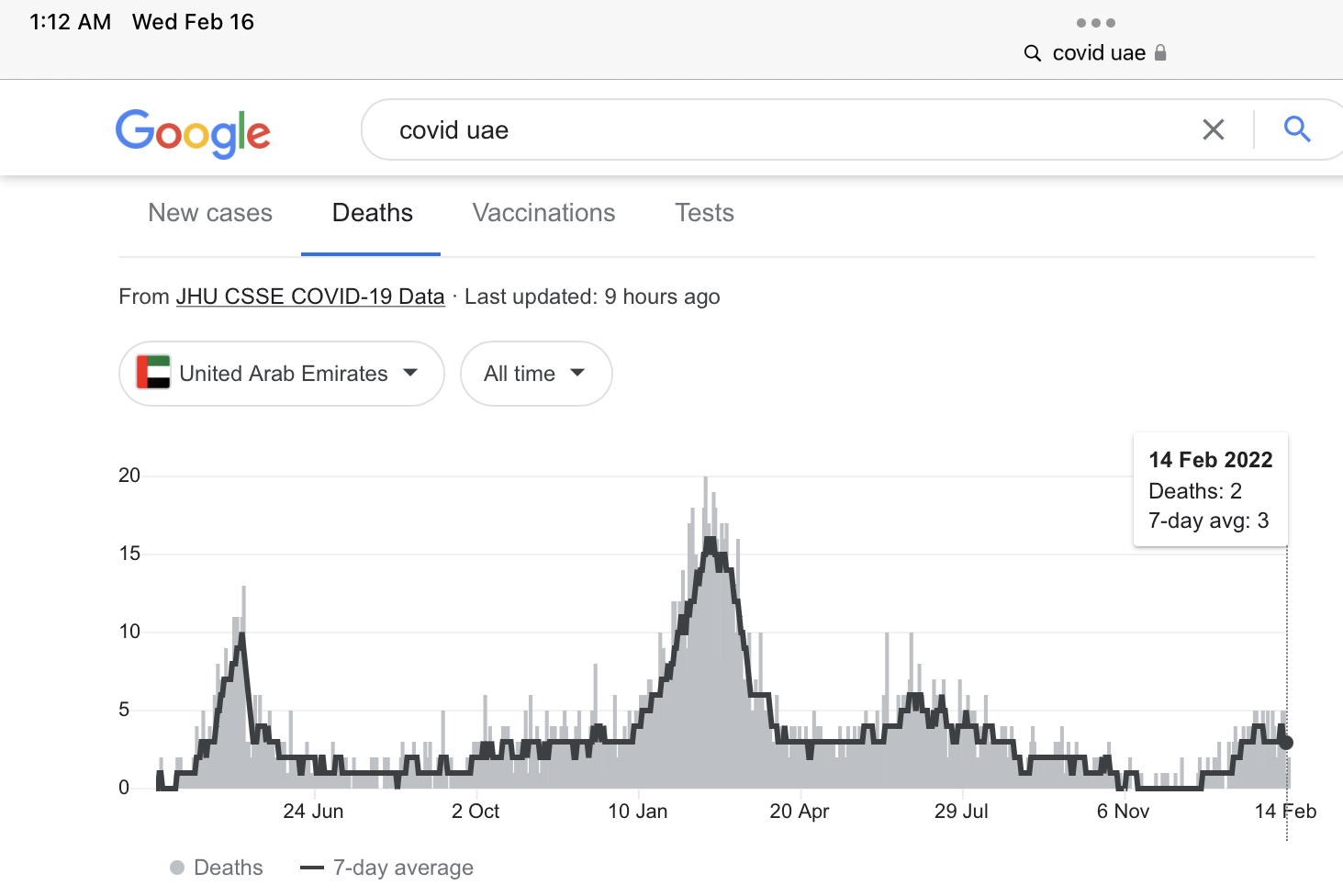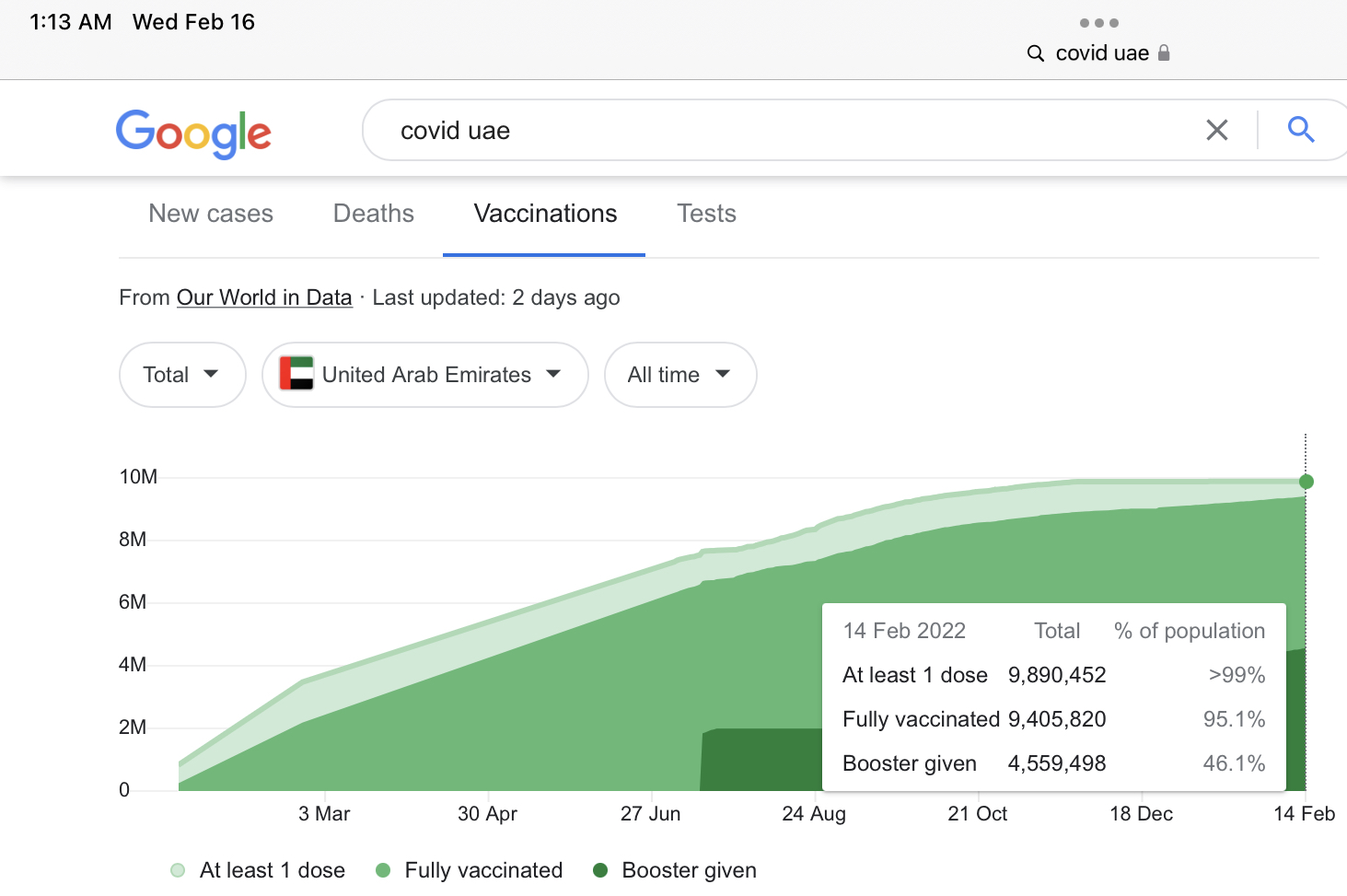UAE is close-enough to a traditional vaccine pure-play even though it offers many vaccines, but produces only one



chinadailyhk.com
UAE basks in vaccination success with Chinese cooperation

Boxes of China's Sinopharm COVID-19 vaccine are seen during vaccination at the Guru Nanak Darbar Gurudwara (Sikh temple) in Dubai on Feb 28, 2021. (KARIM SAHIB / AFP)
With the United Arab Emirates now among the countries with the highest COVID-19 vaccination rate, boosting the prospects of the upcoming Dubai Expo, experts have credited the country’s success to its early health cooperation with China.
The UAE was the first country to roll out Sinopharm-developed COVID shots to the general public in December last year. By March, the UAE announced that it will start manufacturing those vaccines locally under a joint venture between the Chinese pharmaceutical giant and an Abu Dhabi-based firm.
The UAE was the first country to roll out Sinopharm-developed COVID shots to the general public in December last year As of Sept 23, at least 82 percent of the UAE’s nearly-10 million population have been fully vaccinated against COVID-19 and more than 19 million doses have been administered, figures from the UAE’s National Emergency Crisis and Disaster Management Authority or NCEMA showed.
Other vaccines in use in the UAE include those developed by Pfizer-BioNTech, Oxford-AstraZeneca and Moderna, as well as the Russian Sputnik V jabs.
ALSO READ: Wang Yi: China-UAE vaccine cooperation helps virus fight
Ben Hanson, consultant physician and chief executive officer at Dubai-based consultancy firm Rivers International Management Services, said the collaboration of China and UAE in COVID-19 vaccine development has “set the standard internationally” over the past year.
Shaojin Chai, an assistant professor in the Department of International Relations at the University of Sharjah, said there is growing awareness among people that the UAE government’s adoption and provision of the Sinopharm vaccine to all segments of the population has played an important role in curbing the pandemic and preparing for the upcoming world fair in Dubai.
Expo 2020 Dubai, which is expected to host exhibitors from almost 200 countries, opens on Oct 1 after being delayed by a year due to the pandemic.
The expo was originally planned to be held from Oct 20, 2020 to April 10, 2021 but was put off to the revised schedule of Oct 1, 2021 to March 31, 2022.
The World Health Organization had approved Sinopharm and Sinovac coronavirus vaccines for emergency use in May and June, respectively. The Chinese pharmaceutical companies have both signed agreements with Gavi, a global vaccine alliance, in July to ship half a billion doses by mid-2022.
ALSO READ: UAE follows Brazil's lead with plan to make Chinese vaccine
The agreements come amid growing threats of the Delta variant. Some 110 million doses of the Chinese vaccines were immediately available to participants of the COVAX Facility, a United Nations-backed initiative aimed at equitable access to COVID-19 vaccines globally.
Rasha Al Joundy, a senior researcher at Dubai Public Policy Research Centre, said with the pandemic receding steadily in the UAE in the last few months, and the easing of some restrictions related to mask-wearing in public and private places, it marks the outcome of “a reliable pandemic policy”.
Cooperation with China to produce the COVID-19 vaccines in the UAE and making it available to residents in the needed amounts as early as possible was crucial to this success story, Al Joundy noted.
Dubai, she said, was “transformed into a global vaccine logistics hub”, strengthening its capabilities to fight the pandemic, including a multilateral pledge by the UAE to distribute 25 million doses to COVAX.
“This would not be possible without cooperation with China, but it certainly needed collaboration with international organizations, which the UAE established as well,” the researcher said.
ALSO READ: UAE scales up vision for China cooperation
On Sept 15, the World Health Organization said that most countries in the Middle East reported a fall in the number of coronavirus cases and deaths in recent weeks.
Based on evolving trends over the past months, the WHO said that countries with high vaccination coverage and adequate implementation of public health and social measures were reporting shorter waves of COVID-19 and fewer cases.
But it warned that the situation remains fragile and unpredictable. Virus variants continue to pose further challenges to the world’s COVID response, it said.
“Sadly, all vaccines are less effective against the Delta variant in terms of preventing infections and transmission. The good news is that all vaccines are still very effective to prevent serious illness and death,” said Rivers International’s Hanson.
Michael Felfernig, medical director at Abu-Dhabi-based Response Plus Medical Services, noted that owing to the “clever crisis management” by the UAE government, the government was able to provide intensive care unit beds during the COVID infections’ peak so that standard surgeries and other treatments could still take place during that time, in contrast to other countries where other health services had been affected.
READ MORE: China, UAE to boost their high-tech ties
Chai, from the University of Sharjah, said the cooperation between UAE and China has produced a “good result”, enabling the framework’s expansion to help other countries like Egypt.
“Moreover, YishengBio … has been approved by the UAE Ministry of Health and Prevention to conduct clinical trial in the country, which further indicates mutual trust between the two countries and significant cooperation between the medical-scientific and industrial players,” said Chai, referring to a Chinese biopharmaceutical firm that is said to be making headway in vaccine trials in the market.
jan@chinadailyapac.com
Sent from my iPad |




